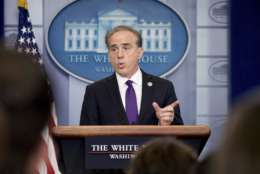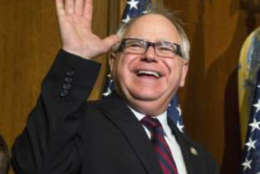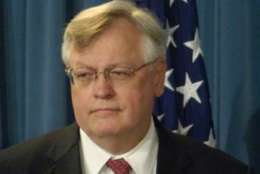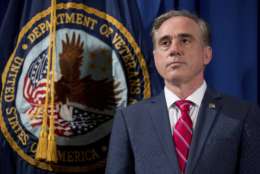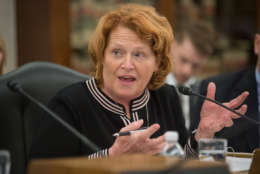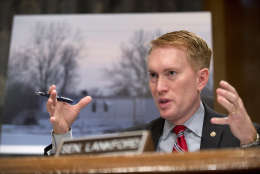Senior Executives Association
-
The Office of Personnel Management released a new continuous development framework for senior executives to help them plan and track a path of professional learning and development.
July 31, 2017 -
Bill Valdez, president of the Senior Executives Association, joins host Mike Causey to discuss how things are going for the SEA and the Senior Executive Service. July 12, 2017
July 11, 2017 -
According to the Veterans Affairs Department's new reports detailing all major disciplinary actions for its workers, VA is on track to fire fewer people in 2017 than it has during the past six fiscal years. Federal employment experts say the new adverse action reports lack some significant details about VA's efforts to improve accountability and transparency.
July 10, 2017 -
The Office of Personnel Management is receiving more applications for the phased retirement program this year than it had during the first full year of its existence, but the numbers are still relatively low, given the large number of federal employees who are or will be eligible by the end of fiscal 2017.
June 28, 2017 -
Congress and the White House have a laser-focus on four major parts of the federal civil service retirement program. So which one is going to get the ax?
June 28, 2017 -
The House will pass the VA Accountability First and Whistleblower Protection Act, clearing the way for the President to sign the bill later this week. Some lawmakers and veterans service organizations see the bill's passage as a major win after years of debate over new accountability legislation. But federal employee groups say the bill would do more harm than good.
June 13, 2017 -
President Donald Trump announced his intention to nominate George Nesterczuk, a former senior adviser with broad government experience, to lead the Office of Personnel Management.
May 23, 2017 -
The Veterans Affairs Accountability and Whistleblower Protection Act, which senators introduced last week, may have more momentum than previous bills. It now has 12 co-sponsors, including four Democrats and VA Secretary David Shulkin himself. Yet some federal employee groups and experts question whether the new bill has the teeth to truly tackle long entrenched cultural problems at the department.
May 16, 2017 -
In today's Federal Newscast, the Senior Executives Association releases a new Strategic Direction which lays out how it will prepare for the federal workforce of the 21st Century.
May 12, 2017 -
Heidi Heitkamp (D-N.D.), the ranking member of the Senate Homeland Security and Governmental Affairs Subcommittee on Regulatory Affairs and Federal Management, said she and subcommittee and Chairman James Lankford (R-Okla) will make civil service reform a major focus this year. She and Lankford are looking for ideas that attack the root causes of some of the most challenging problems facing the federal workforce.
May 11, 2017 -
The Office of Management and Budget is asking agencies to come up with new performance management plans by June 30. Human capital experts say the OMB guidance prompts agencies to consider several important questions but focuses too heavily on addressing poor performers, and not enough on recruiting and retaining top employees.
April 14, 2017 -
The Office of Management and Budget's plan to reorganize the government and restructure the federal workforce isn't a direct threat to agency employees, OMB Director Mick Mulvaney said. The Trump administration sees it as a way to finally recognize what Mulvaney describes as a deep-seated frustration in the federal workforce: top performers are rarely rewarded for their work, while poor-performers escape with few consequences.
April 12, 2017 -
The Office of Personnel Management granted additional exemptions to the President's temporary hiring freeze. OPM and the Office of Management and Budget gave agencies permission to ask for others if they fall outside of the administration's original exemption guidance.
March 13, 2017 -
Federal News Radio reporter Nicole Ogrysko and Carol Bonosaro, retired president of the Senior Executives Association join host Mike Causey on this week's Your Turn to discuss the federal hiring freeze and five to eight bills in Congress that could affect feds if they become law. February 15, 2017
February 14, 2017 -
The Senate Homeland Security and Governmental Affairs' federal workforce subcommittee said it's on a fact-finding mission this year. Subcommittee Chairman James Lankford (R-Okla.) said he wants to hear from federal managers about the existing authorities and processes that make their jobs more difficult.
February 09, 2017



